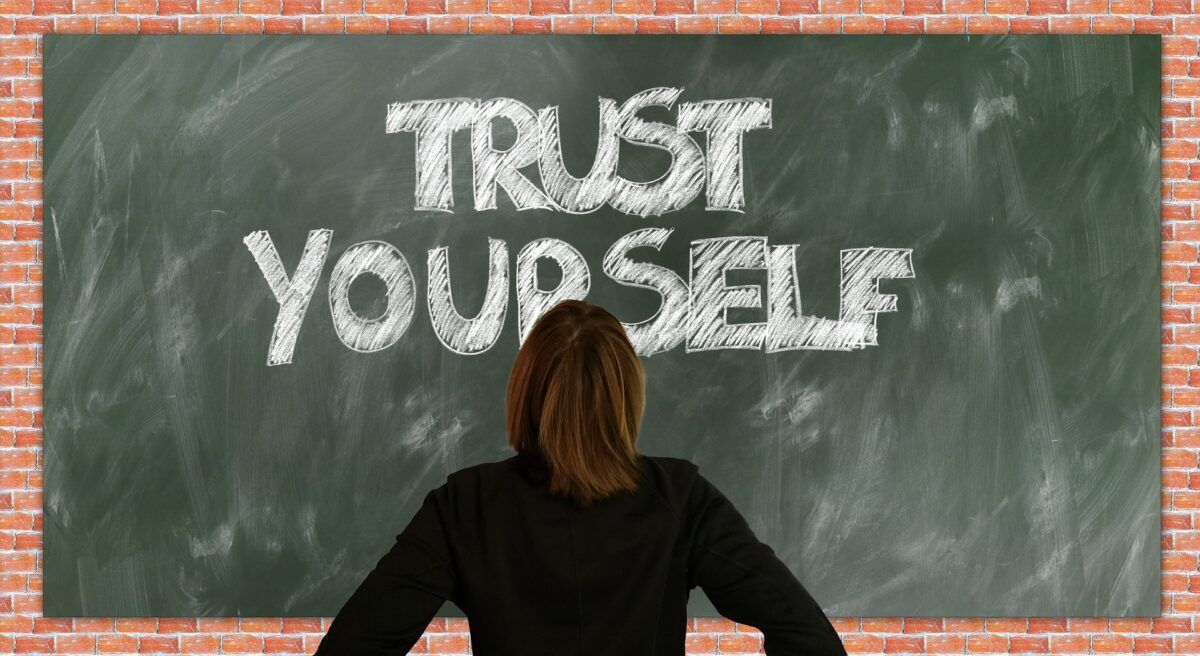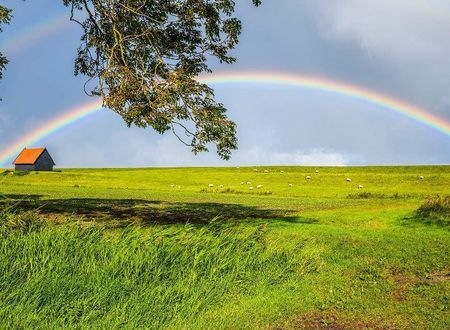I have worked as a researcher for some of the largest universities and tech companies in the world. Every day I am surrounded by some of the world’s first-class minds – people with PhDs from Ivy Leagues, having worked in some of the world’s top institutions, making top dollars, and impacting billions of lives on this earth. On any given day, across any measurement parameter, you could consider these people successful.
We have these research jams – meetings where my teammates present their thoughts, ideas, and the projects that they were working on or have worked on. In my mind, each presentation is special, reflecting the presenter’s skills, clarity of thought, and the blood, sweat, and tears behind those ‘key insights’. During the presentation, everyone is nice, supportive of each another, and pretty generous in their appreciation. However, things sometimes are quite different behind closed doors, on those rare vulnerable moments, where the insecurities of people are apparent.
I remember having this conversation with a fellow researcher. She seemed overwhelmed and stressed out and I gently asked her what was bothering her. She said she felt this increasing pressure to be great at everything — statistics, storytelling, technology, stakeholder management. Her accent bothered her (an immigrant). She didn’t feel she was assertive enough, or loud enough, or good enough! She constantly felt insecure about her worth in the world. She was working 18-hour days and felt ‘inadequate’ and ‘burnt out’. Mind you – this individual had about a decade of work experience working with some of the smartest people, helping create some of the world’s most innovative products. She was one of the smartest people I knew, very kind, and generous to a fault.
So what did I tell her? I heard her. She was me – although a different version – a version that I had left behind, that I had worked very hard to conquer. I told her my story.
I come from a middle-class family in India, where education was the only way to a decent life. My parents were supportive. I worked hard, and did what I was expected to do as a ‘good’ girl. I completed my engineering, got a decent job, and married well. But, I was not happy. There was this deep restlessness within to do something more, achieve something more, to be more. I enrolled in a PhD program, which was awesome because it gave me a creative outlet. Subsequently, I became a professor. I was happy, but the restlessness didn’t go away. I was trained in a certain method, and felt that I was missing out on other critical ‘knowledge’. There was this burning desire to learn more, to be better. So, when I had the opportunity to do a second PhD, I felt the stars aligning. I worked hard, learnt some new skills, wrote quite a bit, published a lot. But, that sense of inadequacy, of not being enough did not go away – it was still present, lurking, giving me sleepless nights and restless days. I had to know more. I couldn’t help myself. So, I took these additional courses, burnt the midnight oil for classes that I felt made me more relevant, and more marketable. The courses were hard and I was miserable. Eventually, I completed my PhD. It was not as ‘fun’ as the first one, but, I felt I learnt a lot. I became a professor again. I loved the academic life, working with students, writing papers, but only for a short while. Yet again, there was this sense of inadequacy, of insecurity – that my work is not important enough, that I am not important enough.
That familiar sense of insecurity won’t let me be. I had to do new things, test new boundaries, explore new opportunities. I was constantly looking for interesting things to do, to not be boring, to not be stagnant. I landed a research role in a tech company, and I am figuring out the nuts and bolts of ‘industry research’ now. Am I happy? Probably. Am I content? For the moment. Through all these ‘adventures’ I had come to the realization that I cannot know everything. There will always be someone smarter, more successful. There is no end to it. I am not going to cure cancer or solve the world’s climate crisis. I am not going to be the youngest grandmaster or a Nobel Laureate. And you know what? I made peace with it.
I realized I am okay. I don’t need to be spectacular, or work on great things, or solve the world’s greatest problems. I don’t need to be the ‘best’, or the ‘smartest’ person in the room. It’s a quest for disaster. Instead, I learnt to be okay with who I am, with what I have, and all the things that I can do given the person I am. I can do things that I like, make the world a better place in my own small ways, and stop measuring up against others. It’s okay to be ‘good enough’ and not the ‘best’. What is the definition of ‘best’ anyway? Some of the most beautiful people I know or ordinary people doing extraordinary things every single day. No one knows about them. And they don’t care.
These days I work with best-in-class engineers, top product managers, accomplished scientists (I know someone who is a researcher and has climbed Mt. Everest!). To tell you the truth, the majority of the time, I am clueless, trying to figure out the uncertainties, that are inherent in new space. However, nowadays, I have this quiet belief in myself. Whenever I feel overwhelmed or out of my element, I assure myself — I can figure it out. I may have to work a little harder, read a few more books, talk to a few more people, and think a little harder, but I will figure it out.
And this is what I reminded my researcher friend – that she is enough, that she is okay, that she will figure it out. It’s a matter of time. All she has to do is stay put and not quit. She listened to me, shed a tear, and thanked me for my candour. Being the introverts that we both were, it was hard for us to be effusive about our mutual appreciation. But, the solemnity of the moment was not lost on us. In the next meeting, I saw her visibly relaxed, smiling and happy. We winked at each other over our shared secret and all was good with the world.
Until next time.
Swati









Comments & Discussion
4 COMMENTS
Please login to read members' comments and participate in the discussion.